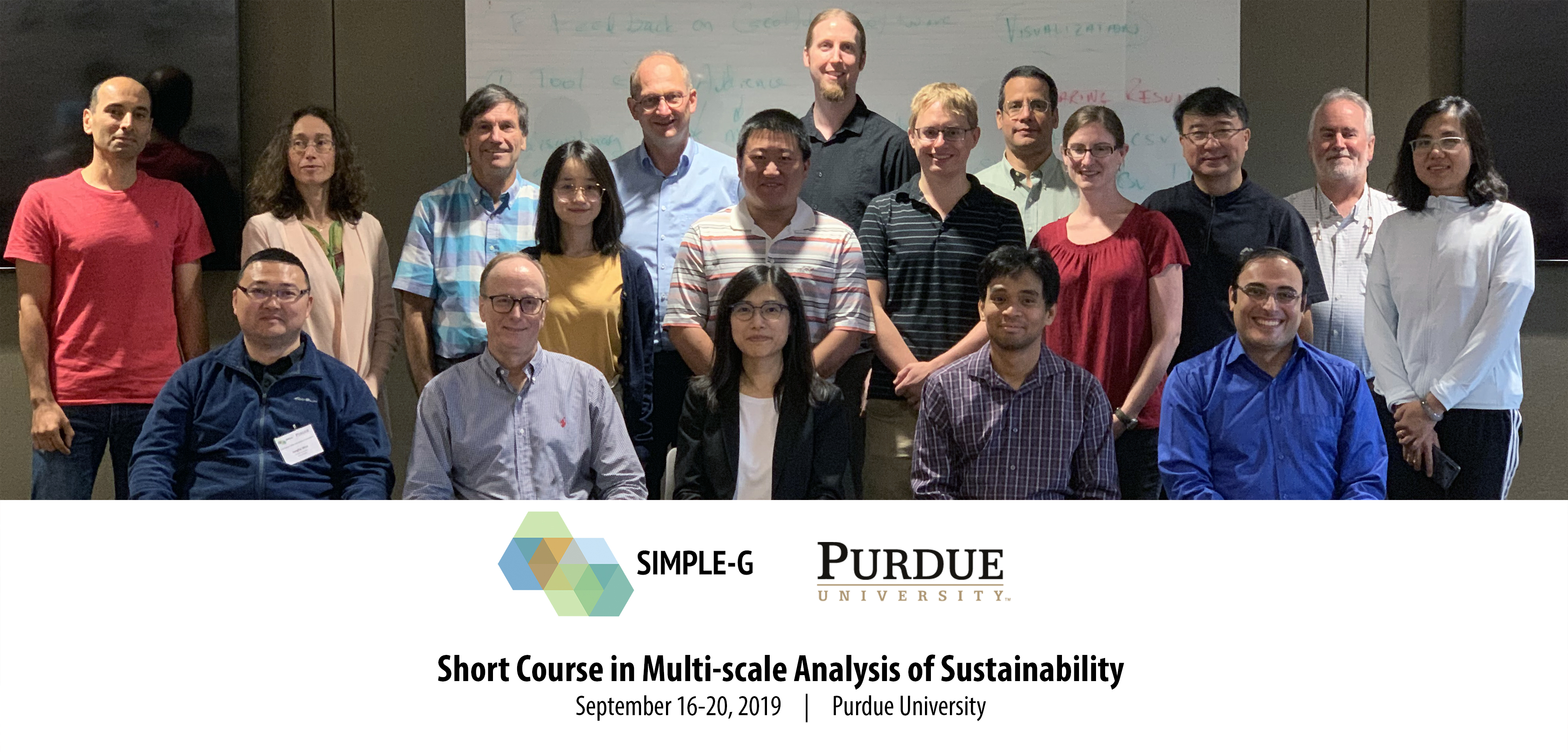Courses
2019 Short Course in Multi-scale Analysis of Sustainability
This online resource includes materials for a graduate-level course on integrated analysis of sustainability. It draws heavily on the research developed under the GLASS project.

The security of food, energy and water is interwoven with human, economic and environmental sustainability. This recognition suggests that decision making for sustainability could benefit from a nexus approach that integrates resources across sectors and scales. The short course is designed to provide students comprehensive training in the equilibrium modeling tools for economic as well as interdisciplinary analysis of sustainability issues across local, national and global scales. Two quantitative tools will be covered in this course: the non-gridded SIMPLE model and the gridded SIMPLE-G model. The training modules are designed to provide an immersive experience that spans geo-spatial data, model code, and software structures to allow participants to examine real policy problems and synthesize quantitative results while enhancing their own intuition.
The training program is delivered in two distinct phases. The online portion is a three-week (August 26 -September 13, 2019) sequence dedicated to exploring a global partial equilibrium SIMPLE model. The main objectives are to understand the microeconomic underpinnings of computable equilibrium models and learn the implementation via the GEMPACK software suite. Learning material draws heavily on the book “Global Change and the Challenges of Sustainably Feeding a Growing Planet” (Hertel and Baldos, 2016), an online course based on the book, as well as the resources developed under the GLASS (Global to Local Analysis of Systems Sustainability) project. Each weekly module is estimated to take 3 hours and is comprised of book chapters (theory focused), lab exercises and discussion (implementation focused) to highlight major learning objectives. The lab assignment provides students with a chance to practice communicating quantitative results to policy problems that triggers a round of instructor feedback.
The five-day onsite course (September 16-20, 2019) advances the training by introducing the gridded version of the SIMPLE model. The week begins with an intensive mix of lecture and laboratory sessions designed to develop the economic intuition required to develop more complex policy analyses. The learning objective of this first half of the onsite course is to prepare students for analysis that incorporates multiple policy instruments and measures of economic impact. The onsite course culminates with a two-day replication and extension exercise supervised and assisted by instructors from the GTAP Center.
Detailed course schedule can be found here.
